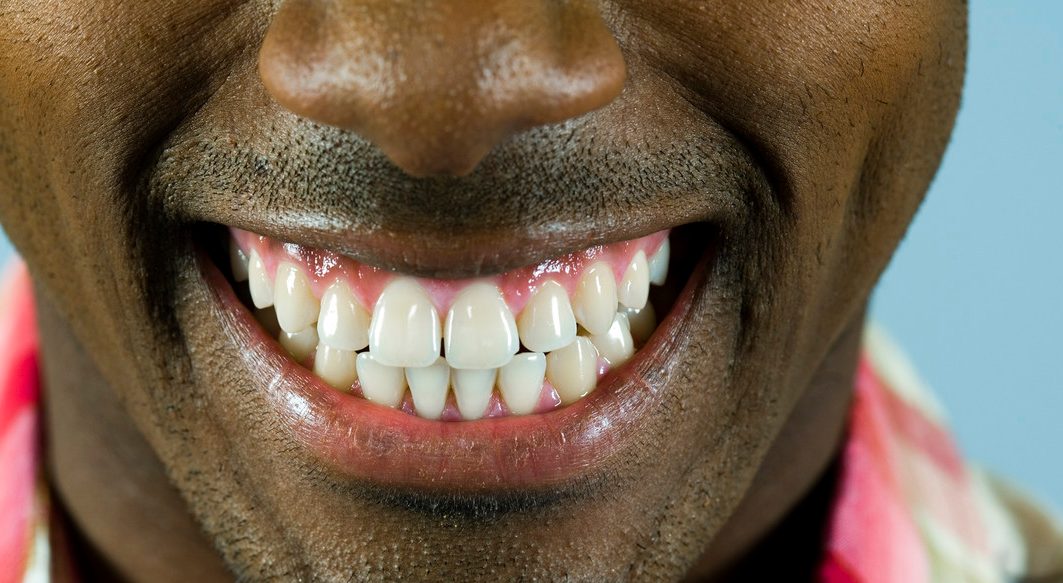Good Oral Care Is Important to Your Health

People vary a great deal in their chances of developing gum disease, but everyone needs to take good care of their teeth to avoid health problems. Here’s what you should know.
Americans don’t see a dentist regularly or take good care of their teeth, but the consequences of avoiding regular checkups can impact your health.
YOU MIGHT ALSO LIKE: Is Stress Hurting Your Teeth?
Do your gums bleed?
That’s a sign of early gum disease and very common. Nearly half of U.S. adults 30 years or older show signs of gum disease. More than a quarter of all adults have untreated dental decay, according to the Centers for Disease Control and Prevention.
The problem is that less than a third of U.S. adults floss every day. A similar portion say they never floss, while the rest floss occasionally. The two sets of statistics are clearly related.
People accepted cavities before researchers discovered in the 1950s that fluoride could prevent them. The Three Stooges developed an entire short film around the subject that was hilarious, yet painful to watch. But there are children today who have no cavities thanks to fluoride and dental sealants.
In many adults, that fatalistic view of developing cavities still exists. They tolerate them for far too long or don’t maintain a regular schedule of dental checkups that can now catch cavities so early they can be reversed.
Once the acid released by bacteria dissolves the tooth enamel — the hardest substance in the body — and the softer inner layer called dentin, the living pulp of your tooth will die. Then, the only way of keeping your tooth is root canal therapy, which is far more expensive than checkups every six months.
When you brush your teeth twice a day, generally in the morning and before you go to bed, you are removing a sticky film called plaque. Scientists now know plaque is an interconnected community of bacteria and other microorganisms called a biofilm.
The biofilm also tends to thrive at certain sites in your mouth, those that are susceptible to bacterial growth. If it spreads too much, you may develop peridontal (gum) disease, when pockets of bacteria form between your teeth and gums. That triggers an immune response that can destroy the soft tissue, and even the bone that holds your teeth in place.
At this point you will also likely suffer from bad breath, known as halitosis, which afflicts a quarter to half of U.S. adults. This can affect your work and social interactions.
It’s important to know that bleaching your teeth isn’t the solution. In fact, overbleaching can destroy enamel and leave you in danger of losing teeth.
What you can do
- Brush with a fluoride toothpaste for at least two minutes twice a day, using a brush with soft, polished bristles and rounded ends. Its shape should simply allow you to reach every tooth. Hard bristles can erode your gums.
- Replace brushes every three to four months or when the bristles look frayed or splayed. Old brushes can’t do an adequate job and may retain harmful bacteria.
- Electric and newer sonic toothbrushes are fine when used properly; improper use of an electric brush can lead to gum problems and loss of tooth enamel.
- You should also floss every day to remove food debris and plaque from between your teeth and below the gum line, where a toothbrush can’t go. A plastic or wooden pick can work as well, if you insert it in the same areas.
Researchers have found that development of gingivitis (gum inflammation) and periodontal disease is highly individual, meaning you may not floss and still won’t develop either one. But science also tells us that removing the debris minimizes the chances of an inflammatory reaction.
You may hear advice to use a tongue scraper. It isn’t necessary, according to the American Dental Association, but it does reduce the amount of bacteria in your mouth. Do this in addition to brushing and flossing.
In between brushing, consider chewing sugarless gum. Chewing naturally stimulates salivary flow, and stimulated saliva contains more of the proteins that keep your mouth in balance, holding potentially harmful bacteria in check.
Begin and maintain regular dental visits and cleanings. Millions of people do not see a dentist regularly, even when they have one.
Your teeth affect your overall health
The links between your teeth and other parts of your body can be surprising.
For example, some research links gum disease and brain function. A study that followed nearly 600 men for up to 32 years noted that the more teeth a man lost because of periodontal disease and cavities the higher his chance of cognitive decline. The type of bacteria that causes gum disease has shown up in the brains of individuals with Alzheimer’s disease. It boosts the production of the beta-amyloid plaques in the brain, which are found posthumously in people with the disease.
There is also a connection between gum disease and heart disease. Gum disease bacteria is the most common bacteria in the coronary artery.
Gum disease may also increase your risk of cancer. One reason may be that gum disease bacteria may produce enzymes that boost other enzymes that promote cancer cells.
Gum disease could even be a factor in erectile dysfunction.
Doesn’t all this make dental exams, cleanings, and four minutes a day of brushing and a few more of flossing or using a toothpick seem like a good use of your time?
Updated:
August 25, 2022
Reviewed By:
Christopher Nystuen, MD, MBA and Janet O'Dell, RN